Hello internet, and welcome to my album review of “Top Ten most Epic fish of all time” by Sintel! It’s a pretty unique album, with its silly gimmick belying some genuinely beautiful fish in it. That out of the way, let’s dive right in!

Reviews of older and classic albums

Hello internet, and welcome to my album review of “Top Ten most Epic fish of all time” by Sintel! It’s a pretty unique album, with its silly gimmick belying some genuinely beautiful fish in it. That out of the way, let’s dive right in!
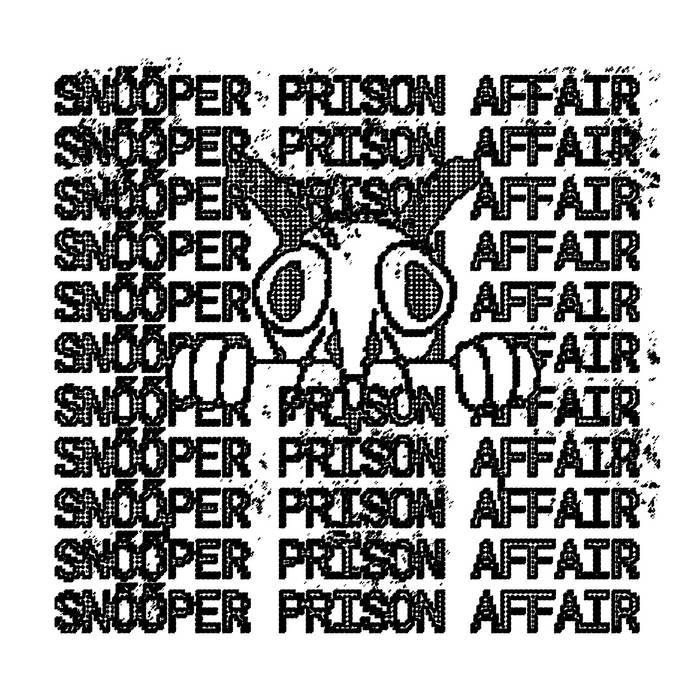
Despite being separated by over 4 thousand miles, two iconic egg punk bands have produced a totally epic crossover.
“Split” is a collaboration between Barcelona’s Prison Affair and Nashville’s Snooper, and it sounds exactly like you’d expect.
Since the group’s emergence in 2019, Prison Affair has amassed an almost cult-like following. Frenetic basslines and intense synth trances give the band’s music that unique DEVO-esque “egginess.”

Prison Affair’s discography is rife with homoeroticism, entendre and crude humor — they’re named “Prison Affair” for a reason — and the band’s merch store boasts bizarre items such as action figures and adult intimacy products featuring “d–knose,” the band’s Kilroy-inspired mascot.
Having made my way through the band’s discography several times over, it’s clear that Prison Affair is, in a sense, a self-contained universe. There’s an artsy, tongue-in-cheek genius behind the band’s highly-concentrated aesthetic, and before their collaboration with Snooper, it hadn’t even crossed my mind that the band was actually a group of people rather than some kind of ironic abstraction.
Dedicated to silliness, spontaneity and simply cutting loose every once in a while, Snooper is an eclectic quintet making massive waves in the egg punk scene.

Borne of the COVID-19 pandemic and vocalist Blair Tramel’s love of papier mache, the band pioneers a uniquely vibrant and lighthearted take on punk rock distortion with songs about cool bugs, spy school and wacky hijinks. The band’s iconic mascot, a giant papier mache bug crafted by Tramel, is especially charming. At Snooper shows, a volunteer dons the creature and runs frenzied around the crowd.
“I think we’re teaching these tough punk guys how to have fun again,” Tramel said in an interview with NME.
“When someone is rocking with the puppet at the show, and they’re in a studded leather jacket, I’m like, ‘How did this happen?’ There’s something really magical about that. I’ll look from onstage and I’m like, it’s working!’”
The EP is featured in two parts, with three tracks uploaded under the Prison Affair name. These tracks are “Algo huele mal” (Something smells bad), “Apuñalamiento (pero entre colegas)” (Stabbing [but between colleagues]) and “Quizás” (Maybe).
The EP is a quick listen, with a runtime of just over five minutes. From beginning to end, “Split” is manic, with a rapid tempo and slurred, repetitive lyrics.

My favorite track, “Apuñalamiento (pero entre colegas),” is a total earworm with its bouncing rhythm and funky beats.
Snooper’s half of the EP, “Split 7″,” is similarly untethered. While Prison Affair’s vocals are monotonous and grimy, Tramel’s high-octave voice is delightfully chipper and a stark contrast to the mounting distortion of tracks like “Company Car” and “On Line.”
While there are numerous stylistical differences between the two bands, “Split” retains sensory consistency throughout. The EP is fun all the way through, and leaves you wanting to scurry around like an insect.
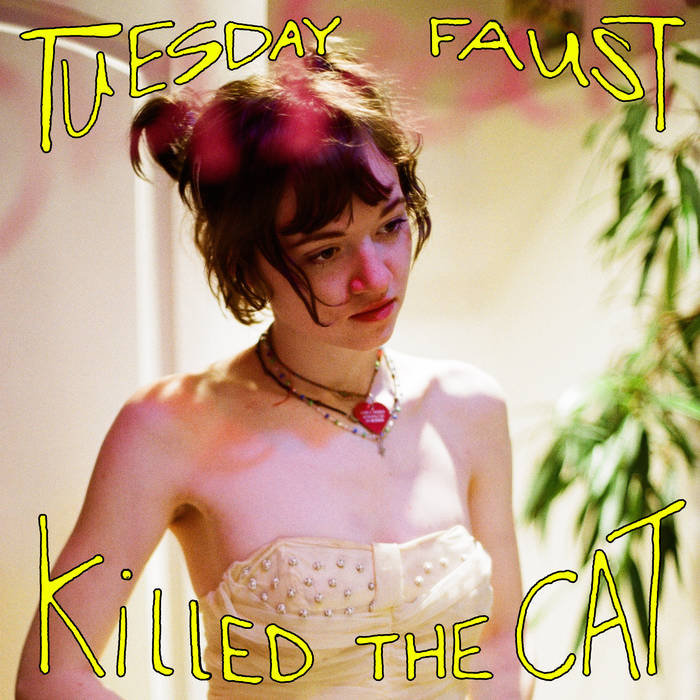
Whimsical and sweet, the first time I heard “Paul” by Tuesday Faust, I was transported far, far away back to my elementary school field trips to the state fair and family summer vacations roaming the beach boardwalk carnival, watching the bright lights and listening to the lilting calypso themes emanating from various cash-grab rides.
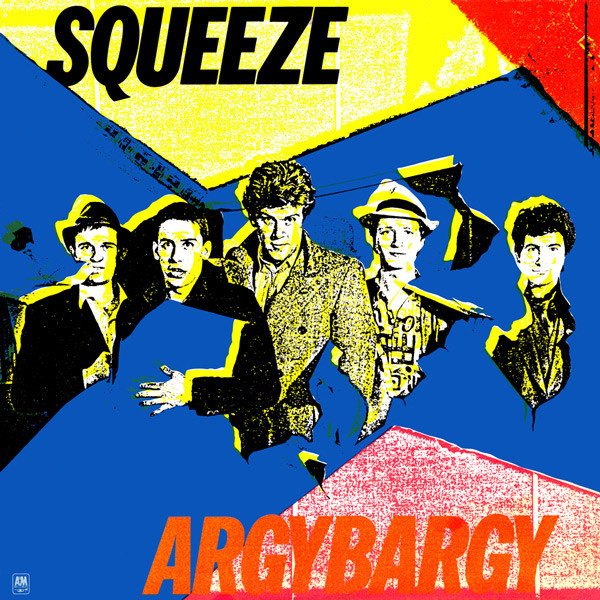
I never thought Squeeze would be a divisive band, but I thought wrong.
Whenever the band appears in conversation, it’s accompanied by a chorus of groans.
According to a certain subset of the population, Squeeze is a girl’s band.
Did the band garner an audience of young women? Of course they did; they were halfway decent-looking young men singing love songs.
But how does that change the sonic validity of a group?
Historically, teenage girls have always been on the cusp of greatness with who gets their fandom.
Sinatra, Elvis, The Beatles, Duran Duran, Madonna and Taylor Swift all captured teenage imaginations and were partially propelled to stardom because of it.
Now, we socially recognize the legitimacy of some of these artists as important to the fabric of pop-culture, but that was only until they gained a more adult audience.
So, what makes Squeeze different?
They ran in the same circles as Nick Lowe and Elvis Costello, being produced by the former and the latter appearing on 1981’s “Tempted” and “There’s no Tomorrow” and 1982’s “Black Coffee in Bed.”
For all intents and purposes, they ran with a cool crowd and played cool music. But because of their designation as a radio pop band for teenagers, they lost their luster.
I was going through my own record collection, and I stumbled upon my beat up copy of “Argybargy,” the band’s third studio album released in 1980 – and I fell in love.
It was a dollar bin lark because I liked “Pulling Muscles (From the Shell)” — a slightly dirty ditty about naughty diversions at the beach — but I never really listened to it until I pulled it from the stacks.
And goddamn was it good.
With “Argybargy,” the band enjoyed a brief flash of global domination and to quote Chris Jones of the BBC, “If you’re going to own at least one Squeeze album, this has to be the one.”
It’s jazzy, it’s fun, there’s almost a doo-wop flair to the dueling vocals of Glen Tilbrook and Chris Difford and there’s a delightfully working class flair to the stories they tell — even with inconsistent songs — across the board it was a fun listen.
The album did well; they found an audience as young and spunky as their sound and they found their stride – good for them, because other bands would kill for a glimpse of that success.
So yeah, chicks dig squeeze (this chick certainly does) and maybe you should, too.
Perhaps we put too much weight on how popularity affects the “coolness” of something — a prevalent WKNC conversation — but I beg that something is popular for a reason…
You can call Squeeze whatever you want — New Wave, Pop, Airheaded-Teenie-Bopper-Love-Songs — whatever you want, but if the music sounds good and the band is respected by contemporaries, maybe we should respect it, too.

By 1966, Bob Dylan and his apostolic audience were at odds and that tension boiled to a head during one pivotal set at Manchester Free Trade Hall, not the misbilled Royal Albert Hall.
In 2022, Cat Power brought Dylan’s words back home, this time in the right venue.
Power, the notorious alternative folk songstress of ’90s acclaim, while known for being obtuse and inaccessible, feels remarkably accessible in this recording.
Released in 2023, as far as cover albums go – which she is no stranger to – this one is almost painfully straightforward.
Equal parts faithful reconstruction and self-aware reimagining of Dylan’s last supper, the album playfully tugs at the frayed edges of folk’s second death knell – Farcically, Dylan had already “killed” folk alongside Mike Bloomfield the year before at the 1965 Manchester Folk Festival.
Following the set song by song right down to the acoustic/electric split half-way through, Power effortlessly waltzes between her own delicate, ghost-like phrasing and Dylan’s nasally-spoken slide.
But as a listener, I’m not entirely sure what keeps Powers back from the precipice of empty pantomime she teeters on.
If anything, “Cat Power Sings Dylan: The 1966 Royal Albert Hall Concert” feels reverential to the point of becoming defanged.
Whether it be the mix or the crowd, there’s a heavy silence that hangs over both the acoustic and electric portions of the album, miles away from Dylan’s caustic bite and his audience’s simmering discontent.
It’s a beautiful album and a wonderful showcase of both Power’s vocal stylings and Dylan’s lyricism but it feels empty above all else.
The moment is too self-aware, too self-referential.
Her audience sits in rapt attention, intimately acquainted with each dip and turn of the score, even attempting to recreate the “Judas” moment…only for it to be on the wrong song.
It’s Power’s response to the Judas heckle that says everything about the auspices this project was conceived under; “No, Jesus,” she responded dryly before launching into a haunted rendition of “Ballad of a Thin Man.”
We all know what that moment meant for the future of music, for the folk messiah to betray the movement he helmed…it changed everything – and that is the albatross that hangs around Power’s neck throughout the set.
Because we know now what that concert meant and what he means to music, we can’t possibly recreate it in earnest – it’s holy, now…it’s larger than us.
But it shouldn’t have been.
“Cat Power Sings Dylan: The 1966 Royal Albert Hall Concert” is a wonderfully accessible foray into Bob Dylan’s discography and the stylings of Cat Power. But beyond a well mixed, well arranged reproduction, Power doesn’t bring anything new or fresh into the conversation.
A good cover album, which, technically this is, should expand upon the material or revive the energy that captured audiences originally – and from where I stand, Power dropped the ball on both.
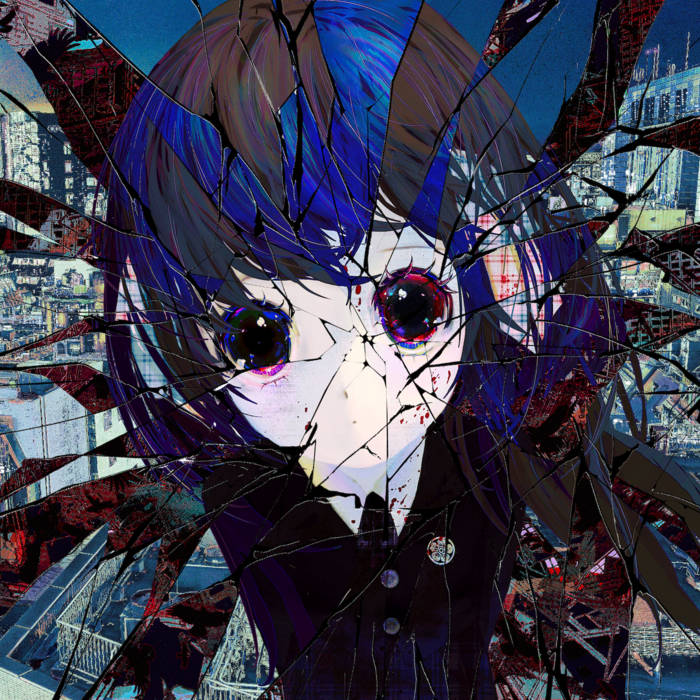
Pushing boundaries is nothing new to Omerta. With their latest single, “Charade,” the band blurs the line between music, cacophony, the avant-garde and the outright unhinged.
Let’s talk about it.
Described by Culture Addicts as a “five-minute opus,” “Charade” is the first track of Omerta’s upcoming album “Suicycle.” The album is set to come out via Blowed Out Records, the label manned by Ross Robinson, Ghostemane and Bill Armstrong, later this year.
As I explained in my profile on Omerta, the band’s genre is hard to define. Despite the valiant efforts of Redditor music aficionados to uncover this sacred truth, the band’s classification ultimately depends on who you ask.

Are they nu metal? Trap metal? Metalcore? A flagrant affront to the music world in general? The Council has yet to offer an answer, and it seems Omerta is dead-set on only further tormenting musical purists.
Have you ever taken a college course that was considered a “make-or-break” type of class? If you’re a STEM major, you probably have. These classes are arduous and tough and often soul-crushing, designed to weed out the people who just can’t hack it.
In a way, “Charade” is a “make-or-break” kind of song. You either get it or you don’t.
I fell in love with Omerta after catching them live at Hangar 1819 back in 2022, during which they performed tracks from their debut album “Hyperviolence.”

How to explain “Hyperviolence?” It’s vile and razor-edged and gritty, the kind of music you’d listen to as an angst-ridden teenager riding the school bus at 6 a.m.. Vocalist Gustavo Hernandez, despite being 5 feet and 2 inches tall, emanates palpable rage. The instrumentation is fierce, the lyrics capricious and the album’s central theme — violence — taking center stage.
In 2023, Omerta released the single “Antiamorous,” a downright caustic track with heavy experimental flair. You can read about it here.
After “Antiamorous,” the band teased “Suicycle” — referencing the term “sui generis” rather than suicice — calling the album the start of a new era. On May 1, 2024, they dropped “Charade.”
The first thing I asked myself after listening to “Charade” was: do I like this?”
The question was difficult to answer. So naturally, I listened to the song 20 more times. I’m still not sure if I actually like it, but it’s certainly interesting.
“Charade” features vocals from Vicente Void, former member of Darke Complex, and alternative rapper Hash Gordon. Both artists have worked with Omerta before, with Void producing most of the band’s songs and Gordon featuring on the “Hyperviolence” track “Cidephile.”
There’s a hard masculine edge to much of Omerta’s music, with the glorification of violence often taking on Clockwork Orange levels of absurdity. From the first few seconds of “Charade,” I knew I was witnessing something drastically removed from the band’s previously-established “brand.”

I was shocked to learn that Gustavo provided most of the song’s vocals, especially those at the first half of the track. His hard, barbed edges are rendered smooth as breakcore-esque electronic beats crackle in the background. I was instantly reminded of the English covers of Vocaloid songs I used to listen to as a tween, and I thought to myself is this actually Omerta?
Just as soon as I asked myself this question, a distorted guitar entered the chat. The vibe instantly shifted, quickly ushering in what I would consider to be classic Gustavo: loud, throat-ripping and laden with expletives. Next, Hash Gordon sending the track into a full-on adrenaline rush with a rapid-fire slant. I was reminded of the insanity of Spider Gang (specifically, Methhead Freestyle).
At this point, I lost my grasp on the song entirely. Even now, having listened through it over a dozen times, I can’t really make sense of it. There’s simply too much going on for my mind to comprehend, hence my inability to truly state whether or not I actually like it.
“‘Charade’ is cringecore,” the band said in a public statement. “It’s avant-garde. It’s post-post-hardcore. It’s acid jazz. It’s K-Pop. It’s prog rock. It’s an anime opening. It’s neo metal. It’s an overture heralding the arrival of a sui generis cycle.
“The postmodern condition has relegated Sincerity, Love and Beauty to vestiges of a bygone era, and in their stead, Cynicism, Irony and Ugliness abound. In this profound, suffocating darkness and loneliness, this song is our proposal for a vibe shift – a bullet through the skull of Nihilism.”
Whether or not “Charade” is truly a “bullet through the skull of Nihilism” or the members of Omerta have simply read too much philosophical theory (or watched too many arthouse films) remains to be seen. With the upcoming release of “Suicycle,” perhaps “Charade” will fit into a bigger, more coherent context.
Or perhaps not. But that may be, as the band suggests, precisely the point.
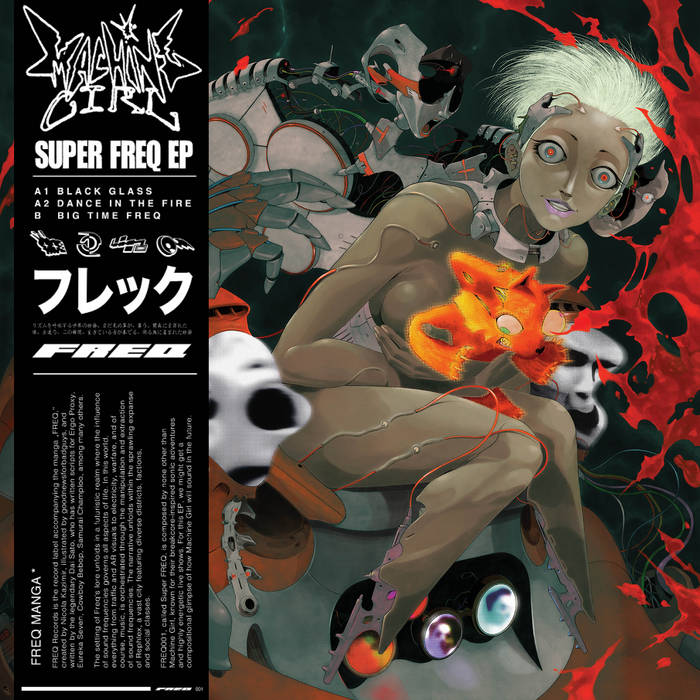
Machine Girl’s latest EP is a perfect blend of frenetic beats and ultramodern digital rhythms. “SUPER FREQ” channels Machine Girl’s classic anime-infused breakcore stylstics with an uncanny twist.
Produced for FREQ Records, the EP stands as a pesudo-soundtrack for “FREQ,” a new manga project by Nicola Kazimir and Dai Sato. Written by Sato, acclaimed for his screenwriting work on “Ergo Proxy,” “Cowboy Bebop,” “Samurai Champloo” and numerous others, “FREQ” takes place in a universe governed by sound.

According to the official “FREQ” Kickstarter, “The setting of Freq’s lore unfolds in a futuristic realm where the influence of sound frequencies governs all aspects of life. In this world, everything from traffic, AR visuals to warfare and of course music is orchestrated through the manipulation/extraction of sound frequencies [sic].”
Consisting of three tracks and with a total runtime of around 10 minutes, “SUPER FREQ” is fast-paced, energetic and futuristic. Though lacking in the stylistic complexity seen in earlier releases like “Wlfgrl” or “U-Void Synthesizer,” the EP is wholly solid.
While “SUPER FREQ” lacks the digital hardcore influence that underscores much of Machine Girl’s work, the EP’s “cleaner” vocal quality allows for Stephenson’s incisive lyricism to really shine through.
The EP’s first track, “Black Glass,” puts an esoteric spin on the digital age. The plight of the chronically online and technologically oversaturated becomes a “black mass,” with the human soul endlessly reflected as “shadows” across an endless expanse of “black glass.”
Crawl into the cave before it’s gone
Before the future turns to aches
Before your blood turns into plastic
“Black Glass,” Machine Girl
There certainly is no dearth of sci-fi futurist dystopias in media: decades-away worlds plated in chrome and illuminated in vivid technicolor. However, as Machine Girl suggests, the sci-fi dystopia is already upon us: our blood is inexorably laced with forever chemicals and our lives are consumed by synthetic stimulation.

Despite the song’s prescient message, it’s consistently upbeat. In fact, the whole EP maintains a sort of cavalier jubilation throughout. The next track, “Dance in the Fire,” is a techno-laced dance anthem. The third, “Big Time Freq,” a chipper instrumental.
Of the three tracks on “SUPER FREQ,” this one excited me the least. Compared to the mysterious “Black Glass” and the manic “Dance in the Fire,” “Big Time Freq” is…kind of bland.
There’s nothing particularly striking about this track, and it lacks the hypnotic frenzy of other Machine Girl instrumentals. My younger brother aptly described it as “video game idling music.”
While “SUPER FREQ” certainly doesn’t take away from Machine Girl’s artistic credibility, it admittedly falls short of its predecessors. The EP is fun and danceable, but it’s only “Black Glass” that really strikes me as iconically Machine Girlesque.
After nearly two years since Machine Girl’s last release, a soundtrack for the platform shooter “Neon White,” it’s fair to say that I hope the duo returns to producing the more involved and experimental LPs that have come to define the breakcore genre.
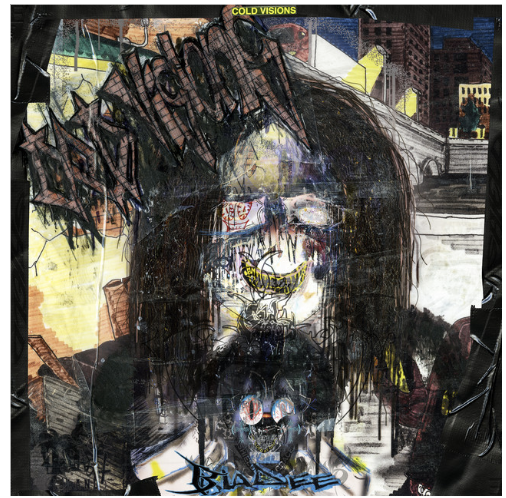
For years now, my obsession with Bladee has been a not-so-secret not-so-guilty pleasure. It’s one of the gaps in my music taste where most people go, really? You listen to that?
Honestly and non-ironically, I find Benjamin Reichwald, known by the moniker Bladee, to be a fascinating, ever-changing artist who has created an intentional, deep mythos around himself and his work.
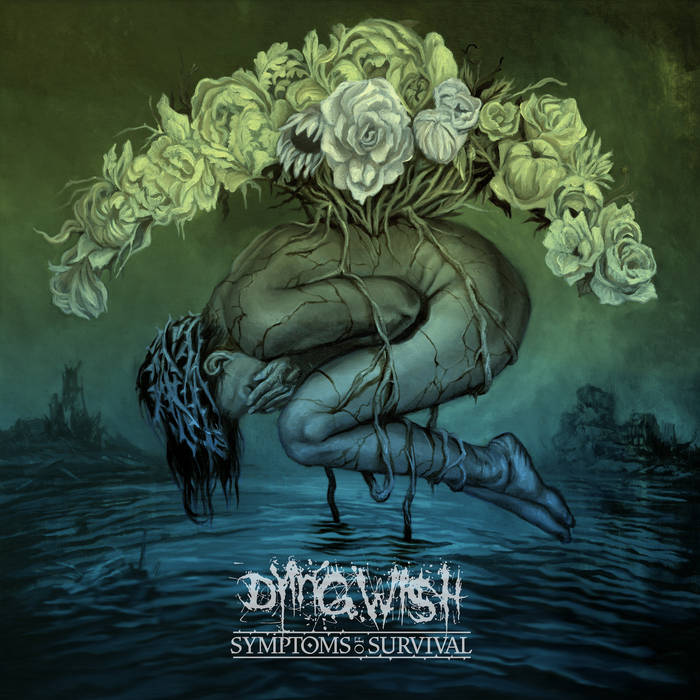
“Symptoms of Survival” is the second full-length album from the Portland, Oregon based metalcore band, Dying Wish. It was released on Nov 3, 2023.
Dying Wish is composed of Emma Boster (vocals), Sam Reynolds (guitar), Pedro Carrillo (guitar), Jon Mackey (bass), and Jeff Yambra (drums).
One would think it would be difficult to top their heavily praised debut, “Fragments of a Bitter Memory,” but Dying Wish continued to push boundaries in terms of sound and create another unforgettable album. By putting their own twist on inspiration from early 2000s classic metalcore, they keep evolving their own unique sound. It’s nostalgic, yet fresh and new. You can hear the passion and love for metal behind this group.
On this album, Boster showcases her seemingly effortless vocal talent, both clean and harsh. Yambra on the drums is a standout in this album for me. The snare, the cymbals, all of it…is heavy. Lyrically, the album is dark and poetic. The lyricism of Dying Wish keeps improving with every EP and album they release.
The album circles around the theme of suffering, and how to cope with such trauma. In an interview with Kerrang!, Boster discusses the album and states, “Here, while there is all this suffering, there is hope.” This album is very vulnerable, but also relatable to many.
This is a no-skip album for me. Here are my top three tracks:
“Watch My Promise Die”
The first 15 seconds of this song will immediately hook you into the album. The drums in the beginning will make you wanna get up and dance, really. While the entire album has insane breakdowns, the one you find at the end of this song is my personal favorite. This song is about fear and self-sabotage. Being the second track, it opens up the theme of suffering.
“Kiss of Judas”
This song is full of anger. This track discusses what it is like to deal with suffering in terms of a more societal standpoint. My favorite element of this song has to be the insane riffs. I think this track encapsulates all strengths of Dying Wish as a whole.
“Lost In The Fall”
This is an example of a perfect album-closer, in my opinion. Boster adds clean vocals to this track, which adds melodic elements to an otherwise brutal song, flowing together effortlessly. This is Boster’s strongest song in regards to clean vocals. Lyrically, it also has to be my favorite. It appears to be about letting go of someone or something that is bad for you, making it a beautiful closer in regards to the theme of the album.
Dying Wish continues the path on becoming one of the greatest. While just on their second full-length album, the future is bright for this band. I highly recommend “Symptoms of Survival” to anyone in need of a solid metalcore record.
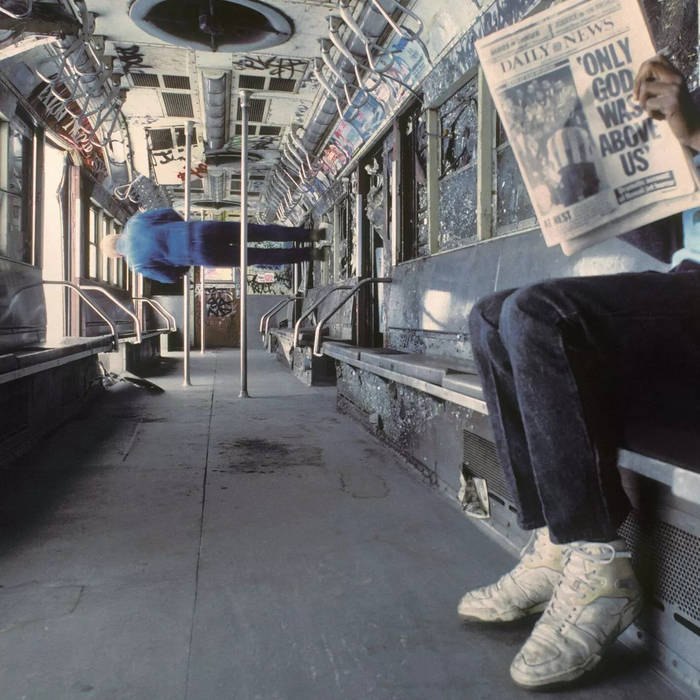
I can’t remember my first introduction to Vampire Weekend, but I can remember how I felt listening to “M79,” at maybe nine or ten years old and feeling absolutely starstruck. From then on, the music stuck with me, dominating my ipod playlists. I carried Vampire Weekend with me everywhere. On the way to school, before bed, packing up and moving from our house in downtown Carrboro to Chapel Hill, sifting through all the boxes to find my CD player so “Campus,” could be the first song to grace my new room.
So, with all that history, I’ve been waiting patiently for “Only God Was Above Us.” The day the album came out I was waiting at the train station to visit my longtime friend in Washington, DC. I listened to the album once waiting in the lobby. I listened to it again staring out the window. Then again, then again.
Read more: Growing Up With “Vampire Weekend,”Staring out through the glass, watching the fields and farms and green trees race by, I was struck by how similar “Only God Was Above Us,” sounded to Vampire Weekend’s previous works. Not so much 2019’s “Father of the Bride,” but the albums that started it all, such as “Modern Vampires of the City,” and the self-titled “Vampire Weekend.”
There was the sparkling instrumentation, the return to jaunty themes and arrangements, the tongue-in-cheek lyrics.
To my suprise, this similarity was intentional. Reading about the album, the things that I had only thought sounded familiar were actually familiar. Keonig and his bandmates picked up some of the motifs from Vampire Weekend’s most popular songs and expounded upon them, calling back songs like “Mansard Roof,” on the song “Connect.”
The result is something strange, uncanny, and to me, a bit jarring. I was filled with an uncomfortable nostalgia. My mind wanted to take me back, but my body was rooted firmly in the present.
On the first few listens, Vampire Weekend was trapped in a moment in time, back to when I was a young kid dancing around my bedroom on my days off from school, but more so, back to the hipster culture of the early 2000s.
But then something clicked. I tried to separate the past and present in my mind, appreciating the artistry of returning to your roots, taking the songs that become so boring to perform and think about after 20 years, and adding new flairs to them, recreating history.
All of a sudden, “Only God Was Above Us,” became something entirely fresh. Among the old there was new, the jazzy touches, the roaring orchestrations and the flurries of sound in “Connect,” and “Classical.”
“Classical,” I think, captures the whole of the album. Koenig sings, “I know that walls fall, shacks shake / Bridges burn and bodies break / It’s clear something’s gonna change / And when it does, which classical remains?”
When stripping away the legacy of the band, unpacking each of the songs, what remains? What pieces can be salvaged, what new things can be built? The classical is the old Vampire Weekend,the old me, the old you. I think this album can be seen as growing up, as rearranging the past messy bits of your life, of moving on and becoming a more well-rounded person.
There’s also the song “Hope,” which is an almost nine minute long track which is epic, hopeful, and future-forward. “I hope you let it go,” says Koenig. “The enemy’s invisible / I hope you let it go.”
In an interview with Exclaim!, he stated in regards to the song, “What does hope mean? Well, I hope I have the ability to let things go; I hope I have the ability to go with the flow of life; I hope I have the ability to love life, no matter what form it takes.”
I think this quote encapsulates what I didn’t recognize about the album before, what was missing from my view of the past. Stepping ahead and becoming an adult means re-contextualizing everything you’ve once done and being able to think more clearly. That’s what Koenig and his bandmates have done here, quite literally, extrapolating on their old songs and adding more.
With that, my nostalgia doesn’t feel so uncomfortable anymore. This album secures fluidity in the legacy of Vampire Weekend. They don’t have to be trapped, they’re a living and changing organism like anyone else. I can still dance around my room, just a grown up kid, knowing this music will grow alongside me.
Top Tracks: